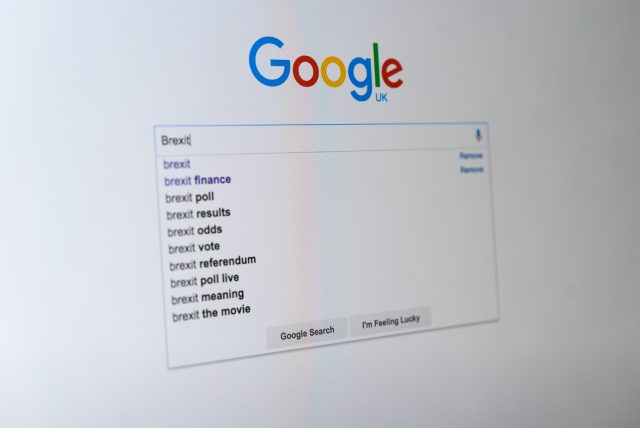
In the wee hours of Friday morning, the people of the UK voted to leave the European Union with a majority of 52 percent—and according to Google, they don't really know why. Two hours after the referendum polls closed, roughly midnight UK time, the Google Trends Twitter account reported a 250 percent increase in people searching "what happens if we leave the EU." "Are we in or out of the EU?" spiked by 2,450 percent.
Other search terms that peaked following the result include "what happens to foreigners if we leave the EU," "what happens if we stay in the EU," and—perhaps most worryingly considering the gravity of the decision—"what is Brexit?"
Earlier in the evening, the top search in Sunderland (one of the first cities to declare its results) was "How do I vote in the EU referendum?"
+250% spike in "what happens if we leave the EU" in the past hourhttps://t.co/9b1d6Bsx6D
— GoogleTrends (@GoogleTrends) 24 June 2016
Unfortunately for the British people, the answer to the question "what happens if we leave the EU?" is unlikely to be answered by a simple Google search. While the short-term effects of Brexit are being felt this morning—a record fall in value for the pound, the loss of London's status as Europe's financial centre, and politicians backtracking on some questionable campaign promises—the long-term effects are extremely complex.
Before the referendum, however, numerous financial experts and governments worldwide warned that Brexit would not only damage the UK economy but also undermine the stability of the EU. Pro-Brexit campaigners dismissed the claims as "scaremongering," with Secretary of State for Justice Michael Gove famously declaring that "people in this country have had enough of experts," even going as far as comparing pro-EU economists to Nazi sympathisers.
Google Trends has continued to pull out search data following the referendum result this morning, and while Google searches are obviously not indicative of the entire UK population, they do at least provide some insight into the country's voters.
"What is the EU referendum?" Top questions on #EUref in Birmingham since polls closed pic.twitter.com/SDvMBW1mol
— GoogleTrends (@GoogleTrends) 24 June 2016
"What does turnout mean in politics?" became the top question on voter turnout after polls closed, while "What is the EU referendum?" became one of the top searches in Birmingham. "What if the pound collapses?" was the second most popular search term in Northern Ireland following the vote, while Wales (which had a majority vote for leaving the EU) asked "What if Wales votes remain?"
The Brexit result will come as a blow to the tech industry, which overwhelmingly backed the UK to remain in the European Union. The lone leave voice from the British tech sector was that of vacuum cleaner innovator Sir James Dyson, who believed that leaving the EU would help him recruit top engineering talent from outside Europe.
While the repercussions of Brexit will be felt for years to come, some are taking it upon themselves to come up with ways to remain in the EU, regardless of how the UK voted: according to Google there was a 100 percent spike in UK searches for "getting an Irish passport" just a few hours ago.
Listing image by Mark Walton
reader comments
514